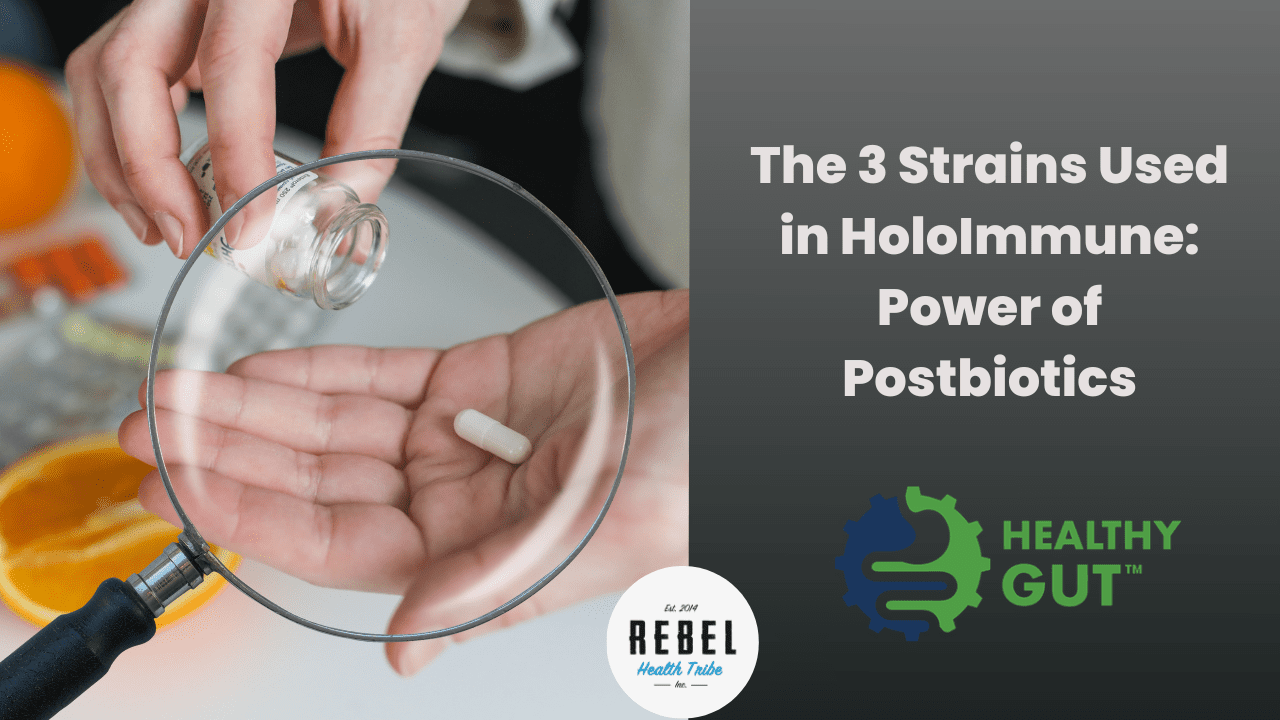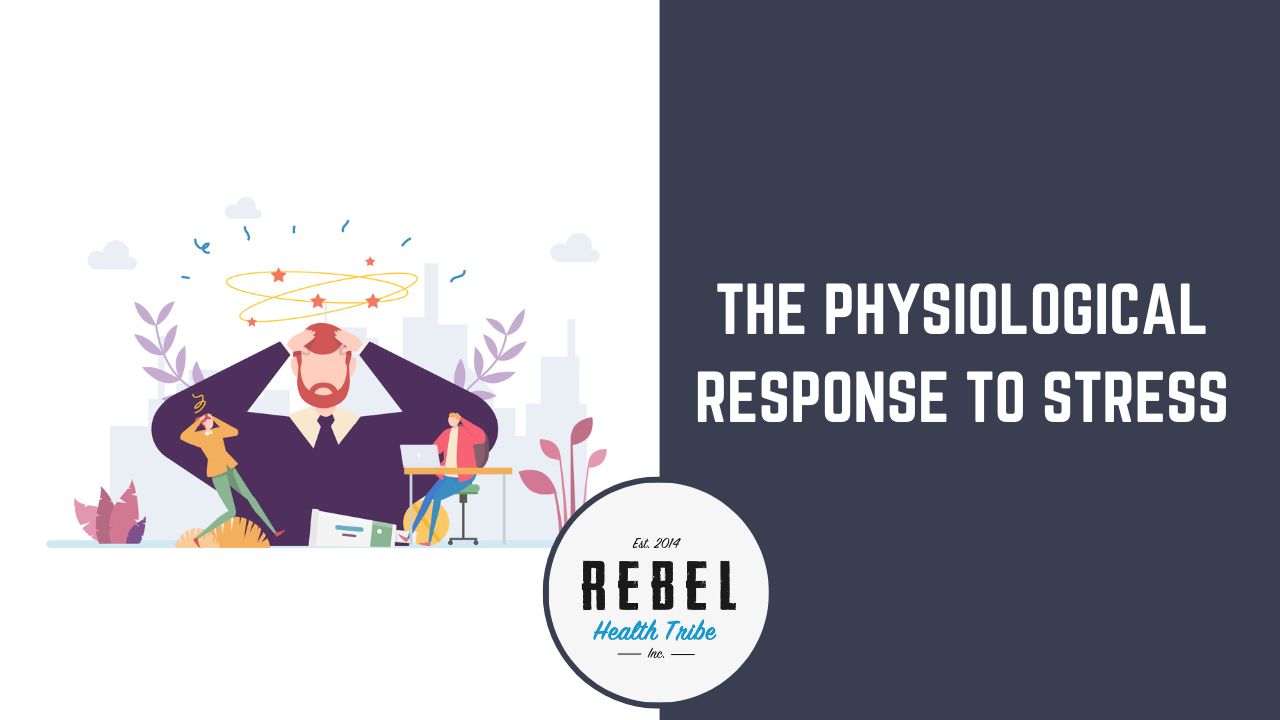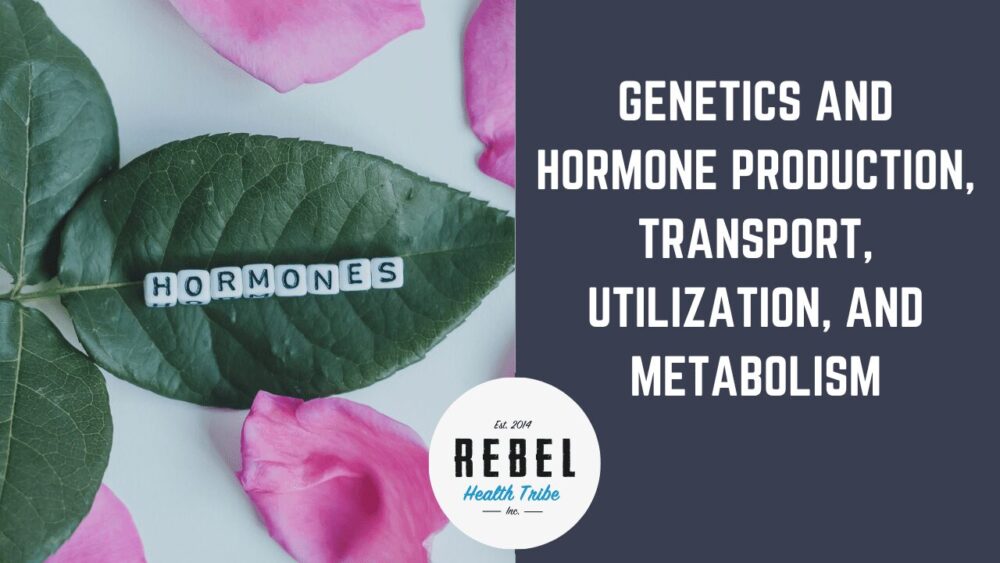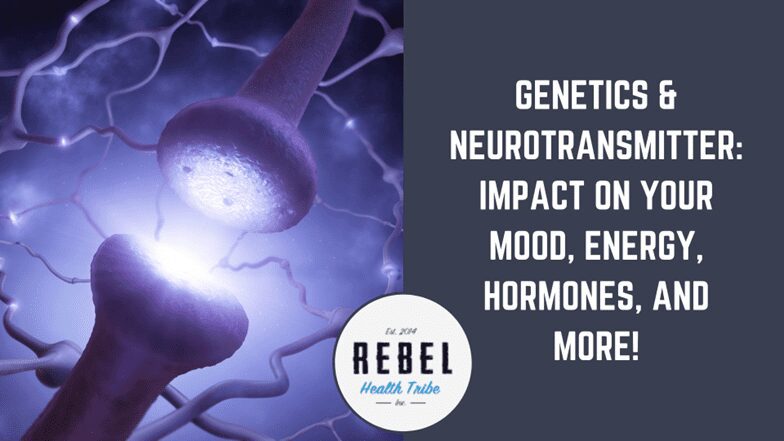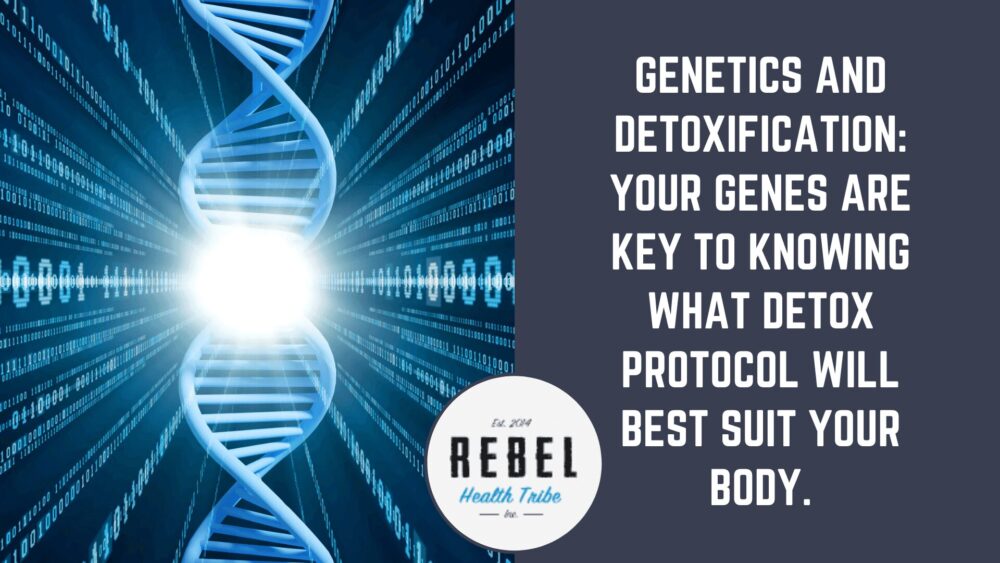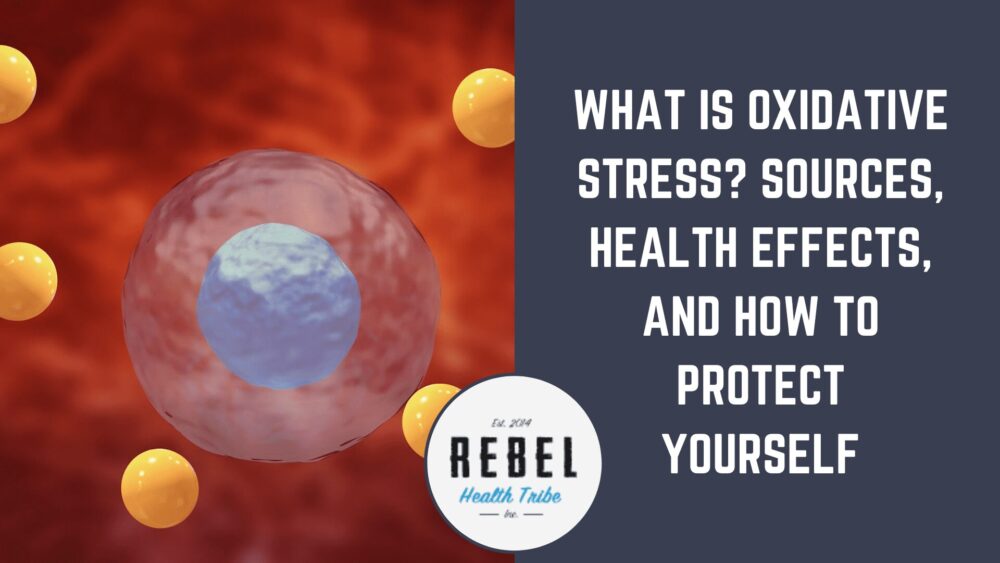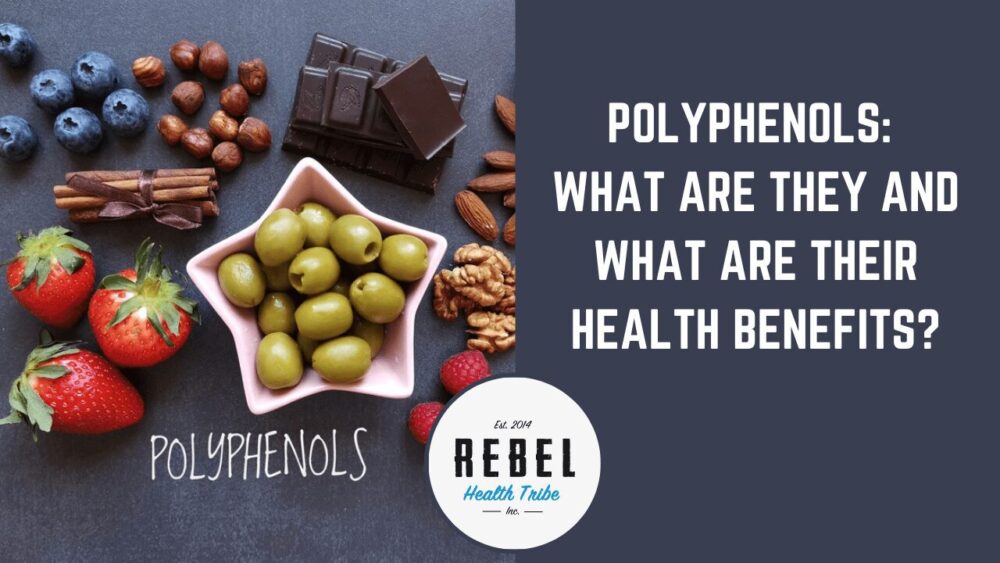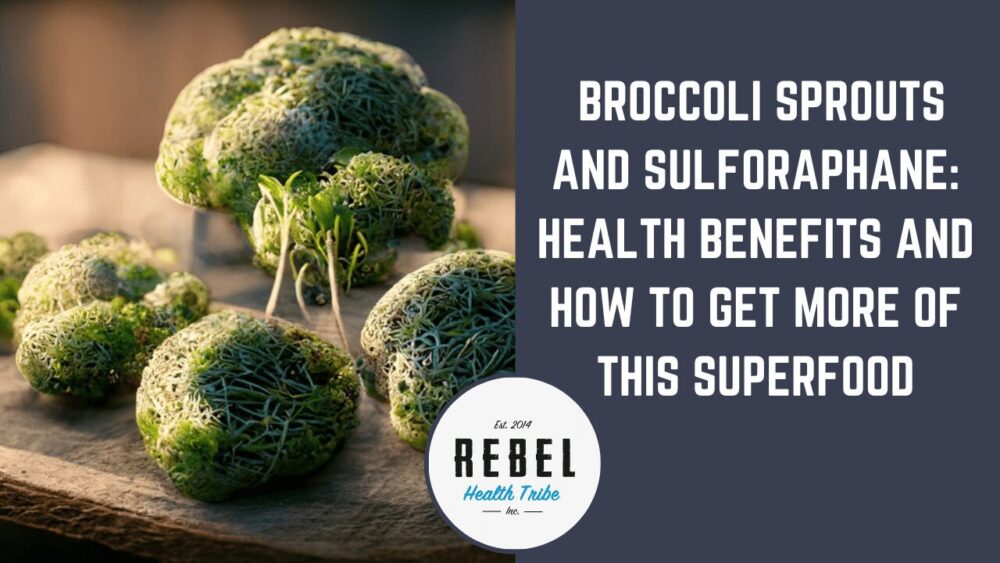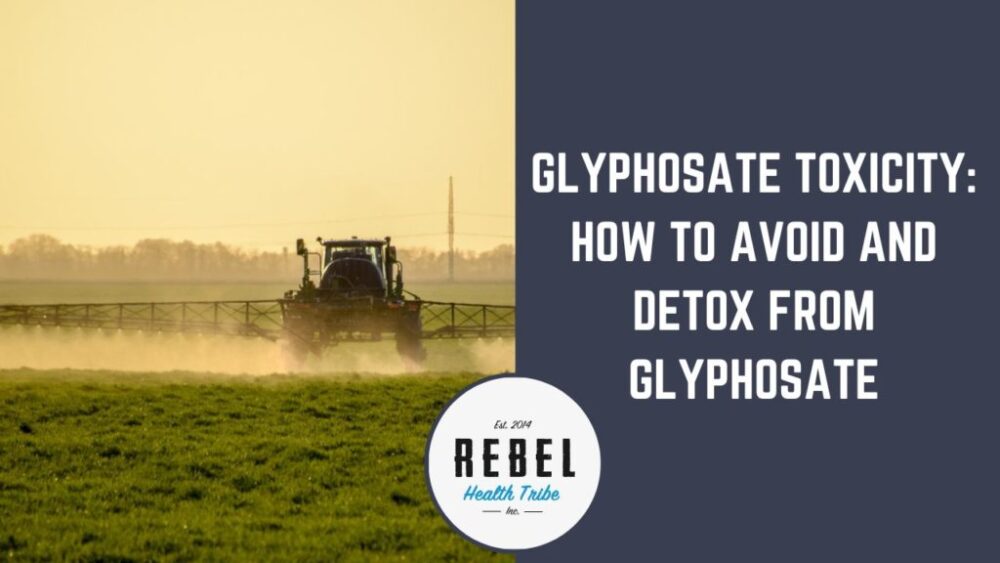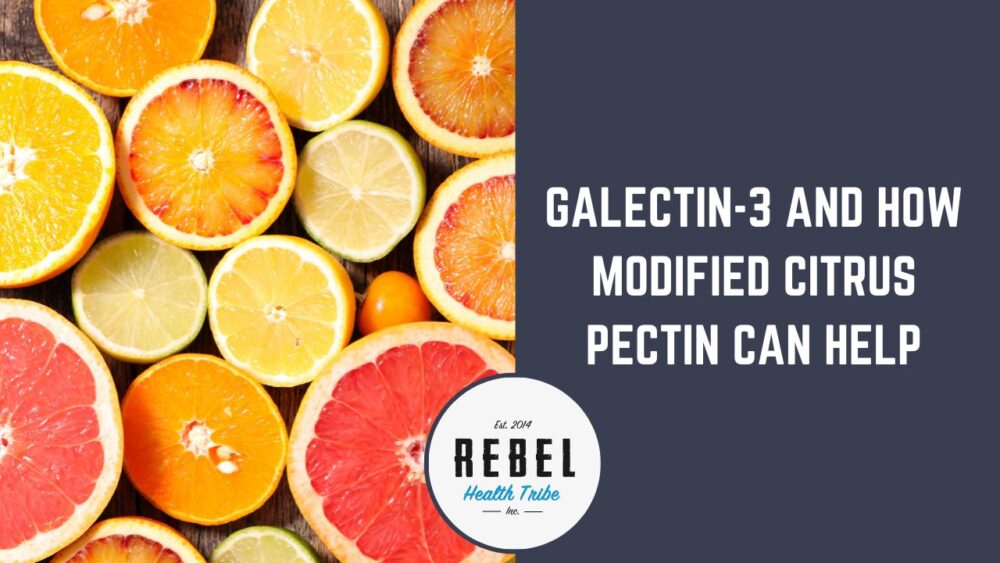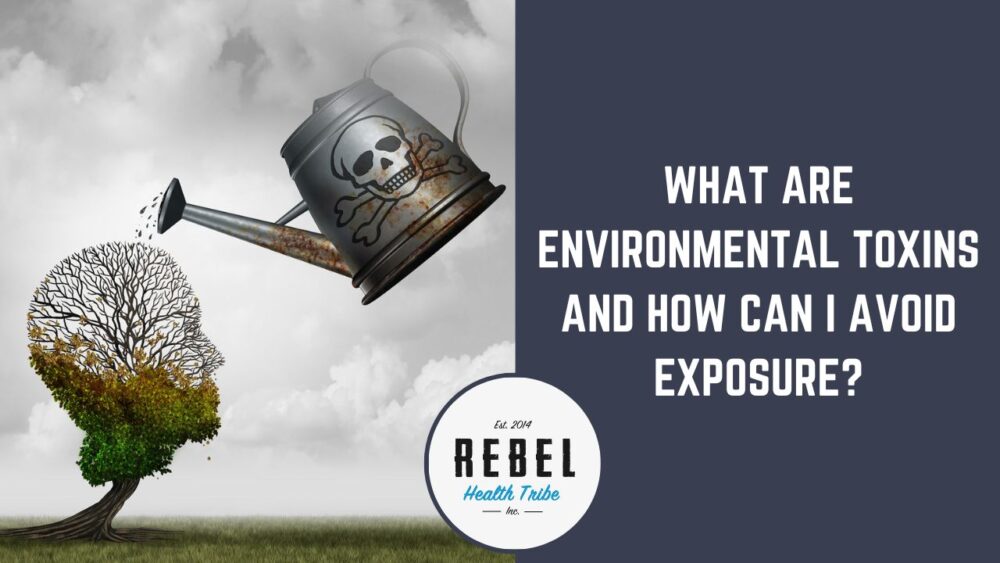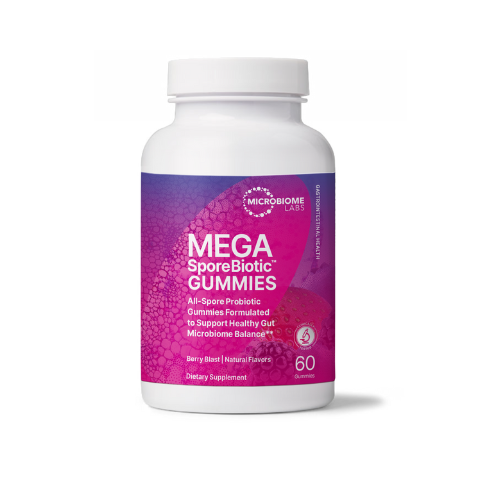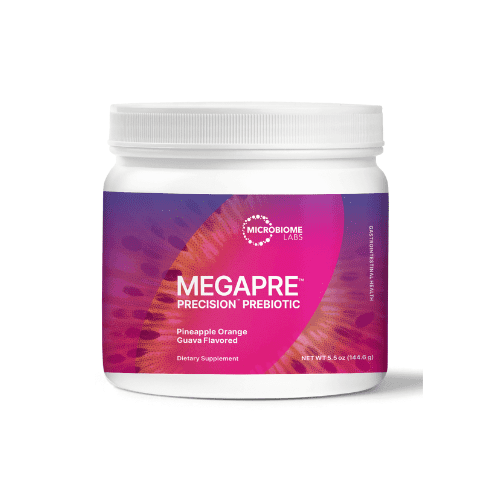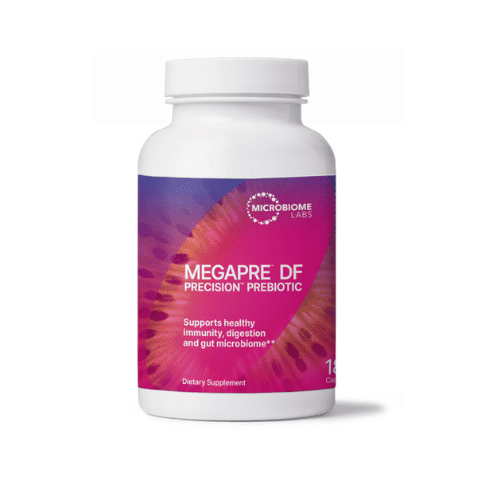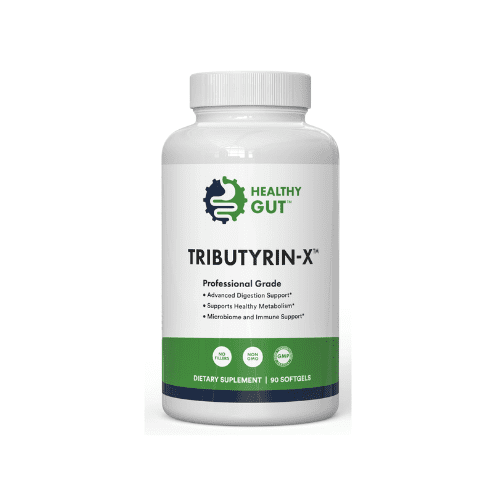The Physiological Response to Stress
Stress is a universal human experience. Life inevitably involves challenges, both positive and negative, that result in feelings of stress. It is familiar to us all.
Because stress is unavoidable, the human body has developed a unique physiological response. When confronted with a stressor, a prescribed sequence of internal events prepares you for whatever action is required. Your physiological stress response is designed to protect you and help you be ready for anything.
Unfortunately, in modern life, stress has taken on a new meaning. While the stress response provided the ability to avoid danger or face a threat in the past, today, stress is a constant feeling mostly unrelated to physical safety.
Your preprogrammed physiological response to stress can be harmful if left unchecked. The body is not designed to live under a constant state of tension. An essential part of holistic health involves addressing the root cause of stress in your life and the health impacts of stress symptoms.
Today we’ll explore:
- The definition and cause of stress
- How the body responds to stress at the physiological level
- Stress symptoms and long-term effects
- Ways to manage stress naturally
- Supplements for stress management
What Is Stress?
At its most basic, stress is your body’s reaction to a perceived challenge or threat. And it’s not all a bad thing. As we’ll see in a moment, your physiological stress response makes you alert and focused, a beneficial state in tough situations.
For example, if you have an important meeting at work, you may feel an edge of beneficial stress, sharpening your focus, memory, and energy. Another name for this type of stress is “eustress,” meaning the stress has a positive effect.
Regular exposure to mild stressors may actually make your body more resilient to extreme stress. This idea is called hormesis. When you learn how to cope with mild stress or eustress, your cells and systems become more efficient and resistant to damage from the body’s physiological stress response.
However, the dark side of stress occurs when you live in a state of constant tension. Your body is designed to experience stress and then release it once the situation is over. Unfortunately, many people are drowning in ongoing daily stress. Another name for this type of stress is “distress,” meaning the stress has a negative effect on health and well-being.
The number of people of all ages who report high stress levels is rising. The long-term impact on health can be severe.
How Is Perception Related to Stress?
It’s not enough to understand what stress is. You also need to know how your perceptions and perspective contribute to your experience of stress.
Not everyone finds the same things stressful. Whether you experience a stress response is based on whether you perceive the specific situation as threatening or difficult.
For example, attending a large, bustling party might be one person’s idea of fun but cause another person to break out in a sweat just thinking about it. While stress is a universal experience, specific stress triggers can vary from person to person.
The upside is that our perceptions are changeable. Changing how you perceive situations that usually cause stress is possible. Mindfulness and meditation are techniques that recalibrate your perceptions for better stress management. We’ll touch more on that later.
Acute Vs. Chronic Stress
Your body is designed to handle acute stress. Minor, occasional bouts of stress are natural and unlikely to cause damage.
Imagine the types of evolutionary situations that led to the development of the human stress response. Encountering wild creatures or dealing with life or death situations call for exactly the physical resources your fight or flight response makes available.
What differentiates acute and chronic stress is longevity. Acute stress ends with recovery. Once the triggering situation has ended, the body completes its stress response and returns to a balanced state. In chronic stress, the ongoing nature of the stressor prevents the resolution of the physiological stress response.
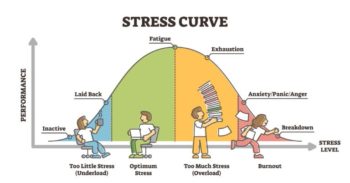
Essentially, as stress goes on and on, so does the wear and tear of a chronic stress response. In addition, when you suffer from chronic stress, you become more likely to experience frequent bouts of acute stress. If not properly managed, stress can take on a life of its own.
Stress Hormones and the Fight or Flight Response
When faced with a stressor, your body initiates a preprogrammed cascade of events that prepare you to handle the threat. The sequence of events is commonly known as the “fight or flight response.”
Your fight or flight response is primarily regulated by the sympathetic nervous system (SNS), a subset of your autonomic nervous system (ANS). The ANS regulates all the bodily functions that take place outside conscious control, such as breathing, blood pressure, temperature regulation, and digestion. Within the ANS is the SNS which initiates the processes that take place during the fight or flight response.
In the presence of a stressor, the following cascade takes place.
- The hypothalamus in the brain perceives a threat and activates the ANS.
- The hypothalamus also releases a hormone called Corticotrophin Releasing Hormone (CRH). CRH stimulates the Hypothalamic Pituitary Adrenal (HPA) axis.
- In addition to CRH, the hypothalamus also secretes Antidiuretic Hormone (ADH), a hormone that causes the blood vessels to constrict and the kidneys to secrete less water. The result is a rapid increase in blood pressure.
- Epinephrine (also known as adrenaline) and Norepinephrine are released by the nervous system, increasing heart rate, dilating the pupils, promoting alertness and focus, slowing digestion, and increasing blood flow to the muscles to prepare them for action. Many of the classic symptoms of acute stress can be traced to these neurotransmitters.
- The HPA axis refers to the coordinated action of the hypothalamus, pituitary gland, and adrenal glands. When activated during stress, the HPA axis releases a cascade of hormones, resulting in a flood of cortisol entering the bloodstream. Cortisol is one of the main stress hormones. It makes glucose available for energy during stress, suppresses non-critical organ function, and regulates inflammation, among many other actions.
The physiological stress response relies on these key neurotransmitters and hormones.
Cortisol, Adrenaline, Epinephrine & Norepinephrine
While many different hormones, catecholamines, and neurotransmitters take part in the fight or flight response, cortisol, epinephrine, and norepinephrine are among the most important.
Epinephrine (adrenaline)
More commonly known as adrenaline, epinephrine is produced by the adrenal glands and the nervous system. When released during stress, it increases oxygen availability, redirects blood to major muscles and organs, blunts pain, and provides increased strength and energy.
In chronic stress, long-term exposure to adrenaline causes jitteriness, trouble sleeping, and may damage the heart.
Norepinephrine
Norepinephrine, sometimes called noradrenaline, is primarily produced by nerve endings. When released during stress it increases heart rate, blood pressure, and the breakdown of fat and carbohydrates for energy.
Similar to epinephrine, long-term exposure to high levels of norepinephrine can damage tissues and lead to wear and tear on the organs.
Cortisol
Cortisol impacts almost every cell in the body. It is a glucocorticoid produced in the adrenals and a primary hormone released in times of stress. It influences energy metabolism, blood pressure, the immune system, inflammation, and even your behavior.
Chronically high cortisol levels create a pro-inflammatory state, suppress immunity, contribute to weight gain, and increase the risk of chronic disease.
What Does Chronic Stress Do to the Body?
Your body is well-equipped to deal with short bursts of stress hormones followed by a period of recovery. However, stress that is ongoing leads to damage and disease.
Symptoms of stress include
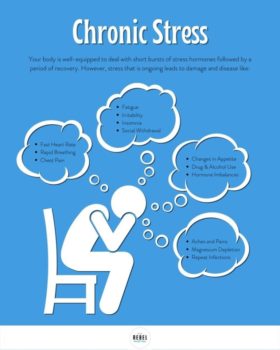
- Fast heart rate
- Rapid breathing
- Sweating
- Chest pain
- Digestive problems
- Stress rash
- Stress headache
- Stress hives
- Fatigue
- Irritability
Long-term, the symptoms of stress may become more disruptive, leading to
- Insomnia or trouble sleeping
- Social withdrawal
- Changes in appetite and weight
- Alcohol or drug use
- Aches and pain
- High blood pressure
- Changes in libido
- Repeat infections
- Changes in mood and emotions
- Hormone imbalance
- Disruption of the microbiome
- Magnesium depletion
A long list of health conditions are linked to chronic stress. These include:
- Hypertension
- Heart disease
- Obesity
- Metabolic syndrome
- Type 2 diabetes
- Arthritis
- Alcohol and drug addiction
- Depression
- Anxiety disorders
- Autoimmune disease
Blood Sugar
One action of cortisol is to make energy available to the body during times of stress. It does this by stimulating the quick release of glucose into the bloodstream. Chronically high cortisol levels may lead to persistently high blood sugar levels and increase the risk of type 2 diabetes.
Blood Pressure
The fight or flight response invests a lot of energy into increasing blood flow. By constricting blood vessels and increasing heart rate, many stress hormones raise blood pressure and blood flow. As a result, chronic stress is a risk factor for high blood pressure.
Heart Disease and Heart Attacks
Chronic stress contributes to many risk factors for heart disease, including high blood pressure, high body weight, inflammation, and metabolic syndrome. Experiencing high levels of stress is a significant risk factor for cardiovascular incidents.
Stress Management – How to Reduce Stress Naturally
If you face ongoing stressors, it’s easy to feel that stress is beyond your control. But that’s simply not true. Whether or not you can change the stressors in your life, there are many ways to target the body’s physiological stress response and protect yourself from the damaging effects of unmanaged stress.
Benefits of Meditation, Mindfulness, and Nature Walks
Stress relief is often a matter of engaging in activities that soothe your perception of stress and down-regulate your physical stress response. While these things may seem too simple, they can be powerful.
Meditation
Numerous studies support the benefits of meditation for stress management. During meditation, the brain shifts from the sympathetic nervous system, which is responsible for the fight or flight response, to the parasympathetic nervous system, which is responsible for relaxation. Meditation has even been shown to reduce cortisol levels.
Mindfulness
Practicing mindfulness is an avenue to alter your perception of stress. Mindfulness is being aware of the present moment without judgment. Learning to release your judgment of what are usually stress triggers can radically change your perception of stress.
Nature Walks
Time spent in natural environments calms the nervous system. Multiple studies document the benefits of nature walks and other outdoor activities in reducing stress. Getting outdoors every day is an antidote to life’s inevitable challenges.

Breathing & Breathwork
This is one of RHT co-founder Michael’s absolute favorite practices for shifting the mind and managing stress. For something simple you can do right now, he recommends this simple technique:
- Sit up straight, in a comfortable position, or lay down on your back.
- Inhale, through your nose, into the belly, slowly for a count of 5.
- Hold for a count of 5.
- Exhale for a count of 5 (or 6 or 7 if you want some extra calming).
- Repeat this for 3-5 minutes and see what happens 🙂
Adaptogens for Stress Reduction
Adaptogens are herbs that support the body’s resistance to stress. They can aid in reducing fatigue, preventing oxidative damage, and acting on the nervous system to reduce the physiological stress response. Depending on the specific formula, adaptogens offer a wide range of benefits.
- Adrenal Super Tonic: Cymbiotika’s Adrenal Super Tonic combines Ashwagandha, Holy Basil, and a blend of other health-promoting plant extracts to help relieve stress, balance your mood, promote sleep, and improve overall health and vitality.
- HPA Axis – Homeostasis: Gaia Herbs has several carefully calibrated adaptogenic blends. Their Homeostasis blend fuses Rhodiola Rosea, Cordyceps mushroom, Ginseng, and licorice (another potent HPA axis-supporting plant extract) for a potent temporary supplement program to help bring your HPA axis back to equilibrium during times of intense stress or exhaustion.
- HPA Axis – Daytime Maintenance: Gaia Herbs Daytime Maintenance blend is a daily supplement designed to nourish your HPA axis – helping your body maintain a healthy response to daily stress. This blend combines Rhodiola Rosea, Holy Basil, Ashwagandha, and Schisandra berry to provide comprehensive support.
- HPA Axis – Sleep Cycle: Gaia Herbs Sleep Cycle blend is carefully calibrated to help promote a healthy circadian rhythm and deep, restful, high-quality sleep. By nourishing your adrenals and HPA axis while you rest, this blend helps your body react in a more calm and balanced way while promoting feelings of peace and contentment.
If you’d like to take a deep dive into adaptogens, check out this article where we cover them in great detail and make some recommendations about how to implement adaptogens into your life.
Supplements for Stress
The impacts of chronic stress are far-reaching. One role of supplements for stress is to aid the body in repair and recovery to tone down the stress response. When the body is depleted, supplements may help replenish necessary nutrients, making the body more resistant to stress.
Liposomal GABA with L-Theanine – GABA has been shown to act on the ANS to promote relaxation and calm. L-theanine is an amino acid that has been found to enhance calming brain waves and work synergistically with GABA.
Magnesium – One of the most abundant (and important) minerals in the body, essential to over 300 biological processes (that we know of), magnesium is depleted during times of stress. Our soil is also depleted, meaning our food supply is depleted… so millions of people are likely facing a deficiency.
One of the most noticeable benefits of magnesium supplementation is a calming effect and enhanced stress management.
If you’re looking for added benefits for the brain, anxiety, mood, and focus – we recommend Liposomal Magnesium L-Threonate from Cymbiotika. For systemic benefits of magnesium with absolutely no other ingredients, fillers, or additives – go with the Magnesium HP from our friends at Healthy Gut. And if you suspect absorption may be an issue for you, and/or you’d like to check out some muscle relaxation benefits – we recommend the Topical Magnesium Oil from Cymbiotika!
And, for a deep dive into the topic of magnesium, we suggest you head over to our magnesium guide post, which is focused entirely on this essential mineral powerhouse.
Stress and Gut Health – Probiotics
The microbiome has an intricate connection to the brain. Through ongoing cross-talk, the microbiome influences many hormonal and nervous system processes and vice versa. When the brain is under stress, it has a trickle-down effect on the health of the microbiome.
A quality probiotic to support the microbiome is an essential supplement for stress.
- Zenbiome COPE – This probiotic features an organism shown to have a beneficial impact on mood, resiliency towards stress, neurotransmitters levels, and the HPA axis.
Final Word
Stress comes in many forms, but our body’s response is always the same. If you’re chronically stressed out, you’re in danger of suffering the many ill effects an ongoing stress response brings.
Stress relief requires stress management. There are many effective ways to interrupt the physiological cascade of hormones and processes that are damaging when left unchecked.
For more information on managing stress, check out the RHT Guide to Stress Management & Sleep Optimization. This downloadable PDF contains a list of our favorite tips, suggestions, actions, and products to help optimize sleep and better manage in today’s stressful world!




